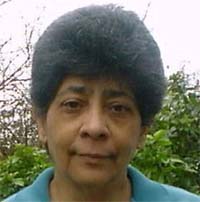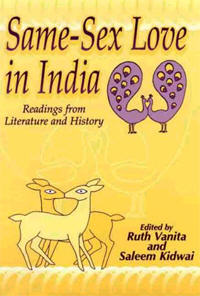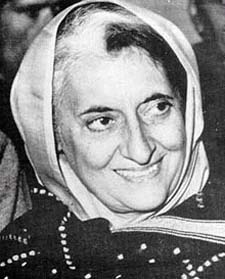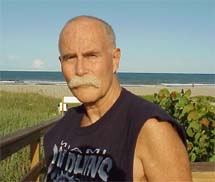
|
Jack Nichols: You've been a multi-faceted gadfly in the Central Florida area, teasing the county's students and the general community to rethink their lives, nudging and prodding people away from dumb dogmas and fundamentalist closed-mindedness and promoting cultural diversity. You had a weekly TV show, in fact, that was broadcast to the whole county. You spoke tirelessly about the philosophers. But what's your philosophy? Behind all these public masks and personae, who is Raj? Raj Ayyar: You know, there are bits and pieces of the 'real' Raj in all those public roles and personae, peeking out like brightly colored shards. It's this strange congruence that scares or puts off some people who find me 'too intense' or...too real? I see myself as a circle with many quadrants and aspects. One is the vulnerable mystical child who sees the world as charged with wonder, meaning and excitement--that miracle is just around the corner! This Raj is an indefatigable magical optimist, with great faith in horizons of possibility and in the basic goodness of people and the universe. This facet of my personality is animistic and sees spirits and synchronicities everywhere. Another side of me is the champion of the underdog everywhere--I have a strong sense of justice that openly challenges the marginalization and oppression of the Other, whoever that Other might be. Societies have been horrendously cruel to the Other---and usually it's a system of power distribution that is founded on sheer intolerance of difference.
My passion for defending the underdog has a metaphysical flip side in seeing the world as necessarily flawed, full of pain and this is the side of me that is attracted to Buddhism and some Gnostic texts, rather than to accounts of a pie-in-the-sky deity Christian, Islamic, Hindu or otherwise, Who favors duly devout chosen Pollyannas. I think all these sides of Raj and more find their fullest expression when I teach. I see teaching as my vocation, almost in a cliched religious sense. Turn me loose at a podium or in any context where I am touching minds and hearts through an exchange of ideas and you'll find me soaring! Jack Nichols: I remember that you used a phrase in a Gay Today interview with the philosopher, Arthur Evans: 'The politics of celebration'. You spoke very highly of Dionysus. What's the significance of Dionysus for you? Is he important in rethinking gay living and liberation? Raj Ayyar: Nietzsche once remarked that he could not believe in a god that did not dance! Dionysus, like his Hindu counterpart Shiva, is a god who triumphantly lives out paradoxes and reconciles opposites--male/female, gay/straight, good/evil, destroyer/tender protector, dancer/madman, Erect Phallus/Androgyne etc.
Moreover, to borrow another Nietzschean phrase opportunistically, Dionysian courage involves a celebratory 'yea' saying to life in its "strangest and hardest moments." I think it takes that kind of courage to consciously live any LGBT lifestyle problematized, bashed and harassed by the homophobic straight majority. Jack Nichols: You managed to stir up the little anthills in small-town Florida with your many 'awareness' fests on campus for World AIDS Day. You knew that the students, without knowledge of the virus, were in danger..... Raj Ayyar: I am constantly appalled by the multiple contexts of denial and buck-passing when it comes to AIDS. HIV-disease is often seen as someone else's problem 'out there'----those Africans, those depraved gay men and promiscuous straights etc. etc. The idea that everyone is at risk to become infected/affected by AIDS is still anathema to fundamentalists and political reactionaries everywhere. Also, the blaseness of many in the AIDS Cocktail generation does not help matters any. They tend to see AIDS as passe, and talk bravely of a post-AIDS reality in the West, not realizing that such cutesy jadedness fuels the spread of the disease. At the other extreme, we have the Jerry Falwell type of 'Religious Reich-ist' who sees AIDS as a punishment inflicted by a punitive God who wants us to toe his anal-retentive moral line. The sooner we leave God out of this AIDS equation and see it as a disease, no more or less, the better for AIDS prevention, funding and research. Or, if you do want to bring in a deity, how about a God of compassion, something like A.N. Whitehead's concept of God as the 'great companion and fellow-sufferer...who understands.' That's my challenge to any theology of AIDS--Christian, Jewish, Islamic or whatever. All this is part of the multi-layered backdrop to my AIDS education efforts and my ongoing commitment to AIDS education.
 Jack Nichols: Some of your students, no doubt, freaked out about cultural points you brought to their attention. But you were more than a shock jock, right?
Jack Nichols: Some of your students, no doubt, freaked out about cultural points you brought to their attention. But you were more than a shock jock, right?
Raj Ayyar: Sometimes you have to wield a metaphorical Zen hammer to wake up people and gently nudge them to explore ideas, people and lifestyles out of their comfort zone and its narrow presuppositions. There is a great inertia about learning anything that goes past conditioned moralities and viewpoints. And yet, any Humanities or Literature teacher worth her/his salt needs to take that deep breath and encourage their students to explore multiple viewpoints and perspectives. Or else, Humanities/Literature becomes little more than a boring rote exercise or at best, an art museum tour. Unfortunately, many timid teachers take that easy way out--it's less controversial and more conducive to tenure and to the simple pleasures of a bovine, undisturbed life in academe! But, I don't enjoy shocking people just for the hell of it... Jack Nichols: You've certainly studied the American gay movement in depth-- from the Mattachine days to our own day and age-making yourself and GayToday's readers aware of many exciting developments in cultural consciousness and practice. Do you see the American LGBT model/(s) as universally relevant? Raj Ayyar: I think LGBT people worldwide can certainly benefit by studying and selectively applying the lessons to be learned from the different models of gay thought and activism in the US, from Mattachine to the present day. But all borrowing needs to be seen and set within a context of local LGBT texts, theories, myths, repressions and practicalities. Thus, I do not see the US models as 'universally' relevant. Jack Nichols: Ruth Vanita has had a great impact on you. Your interviews with her and with Saleem Kidwai have been very well-received, being reprinted on other sites. Did her book surprise you into the discovery of homoerotic texts and practices in India dating back to Vedic times?
Ruth Vanita and Saleem Kidwai are master archeologists of the conveniently glossed-over past, patiently digging up all the buried LGBT layers of ancient, medieval and modern/post-modern India. I think the book is wonderful in that it gives the contemporary young Indian a wealth of traditional support for a non-heterosexual lifestyle, support that is entirely missing in most Indian societal structures. When I think of the sheer misery of LGBT people in India trapped in loveless 'arranged' heterosexual marriages and sneaking out to engage in clandestine same-sex affairs, the book gives me hope that future generations (at least of English-speaking readers) need not choose that beaten path--they can proudly claim a heritage that favors their sexual orientation. Also, the book challenges the myth put forward by Left and Right pundits in India and other post-colonial cultures, that 'gayness' is a Western 'colonial' import. On the contrary, Vanita and Kidwai demonstrate that colonialism created and applied a battery of anti-sodomy laws (like the infamous Section 377 of the Indian Penal Code) and frowned upon or outlawed indigenous same-sex practices. What is ironic is that post-colonial 'identitarian' politicos (Zimbabwe's Robert Mugabe comes to mind here) and fundamentalists invoke these colonial prohibitions in the name of a brave new 'post-colonial' identity! Further, Same-Sex Love in India opened my eyes to the Eurocentrism of gay gurus like Foucault. The book demonstrates that although homosexuality may be a 'construct' it is too narrow and Euro-colonial to say, (as Foucault seems to) that it was a 19th Century Western medical 'invention!' Rather, it may be truer to say that homosexuality--its myths, practices and suppression--was differently constructed in different cultures at different times in history. Jack Nichols: How has feminism affected your own thought processes through the years?
From her, I imbibed a lasting love of literature, especially women's literature. My adolescence was steeped in Jane Austen, George Eliot, the Bronte sisters and Virginia Woolf. I have always relished and celebrated my androgyny, which is why I have far more women friends than men friends. At a gut level, I realize the cusp between feminist critique of masculinist values and the gay spoof and inversion of the same. It is plausible to argue, as Brian Pronger does in Arena of Masculinity that homophobia comes from a deep hatred of women and of the perceived feminine in the gay male. The homosexual man is seen as 'almost a woman'--a sense of gender betrayal and betrayal of masculine privilege lurks behind the attacks, sometimes physical, on the 'sissy.' You make similar points in Men's Liberation. Over and beyond this, I think that feminism in the West has been greatly strengthened by the infusion of lesbian perspectives. While there is plenty of scope for healthy differences of need, agendas and concerns, there is no room for separatism in this--I do believe that straight and gay women need to strengthen their alliance and gay men need to recognize the interweave of their causes with women of any sexual orientation/ethnicity.
Obviously, the situation has been exacerbated since the frenzied racist hysteria post 9/11--the profiling, the arrests without trial, the violence unleashed against Arab Muslims in particular and Brown people in general. I think such 'stepped-up' racism was always latent and just below the surface of civic life in the US--only, after 9/11, it can be expressed safely with a show of patriotic zeal and moral outrage. I'm glad that groups like Black and White Men Together are questioning the traditional racist divide between Black and white in gay and mainstream cultures. More needs to be done as far as healing the great breach, the great divide that now exists between Brown people and the rest of America. Also, there's a great deal of exaggerated ageism in US gay cultures, perhaps more sharply pronounced in gay male culture here. In traditional cultures like India and Europe, the customary reverence for the elder can and has often been healthily sublimated into tender, respectful inter-generational relationships. Part of the problem is the programmed sexually predatory self-definition of many American males, gay or straight--it's a lot more subdued in other cultures. Jack Nichols: I was outraged at the manner in which the 'plantation colleges' of the Florida swamp, as you call them, have treated you after 20 years of well-beloved teaching. What can you share with our readers? Raj Ayyar: It's been a bewildering and demoralizing roller coaster ride, Jack. Twenty years of actively-involved teaching, where I was very active in and out of the classroom, raising sparks of consciousness in many different communities in Florida, generally loved and respected, should count for something. Yet, shortly after a palace coup that deposed the college president in the late '90's, Brevard Community College started to raise questions about my credentials. I have a Master's in Philosophy from St. Stephen's College an elite college in Delhi, India and 53+ hours toward the Ph.D. at Southern Illinois University. I was hired with no questions raised about my credentials. All of a sudden, after 18 years in the field, Brevard Community College started to harass me actively about this and they began to make an issue of it. Were there hidden agendas on their part? I think so. I don't think it was "just homophobia" on their part. I think that I was like Suniti Namjoshi's Blue Donkey in that they found the whole Raj package in its colorful 'differentness' threatening.
Lawyers call this tortious interference. I did hire a lawyer and as a result, SCC backed off and rehired me in 2001, and fired me again in 2002--kinda like Ground Hog Day! After community and student petitions went to Florida Governor Jeb Bush and the Florida Board of Education, SCC has now switched frames--now they claim that it was a simple budget cut layoff! In effect, these colleges have committed professional murder, since I've been cut adrift without references--a must for any full-time hire. If your readers want to write Congress or Jeb Bush or others, or if they want to communicate with me, they can write me at: paddyraj1410@yahoo.com. They can also visit my website: www.namaste-bazaar.com and sign the guest book or just say 'hi.' Jack Nichols: Raj, I'll gladly encourage GayToday's readers to contact their representatives in Congress and in the Florida legislature, spreading the word far and wide about the injustices initiated against you by Dr. Gamble, the Brevard Community College president. In Brevard County, host to the Kennedy Space Center, such vicious growling links him to the cave men, I'd say. Hold tight, Raj, we'll work at getting justice done for you. |
 Raj Ayyar: GayToday interviewer answers the questions
Raj Ayyar: GayToday interviewer answers the questions  Suniti Namjoshi
Suniti Namjoshi  Raj Ayyar in New York City
Raj Ayyar in New York City  Raj Ayyar: I always knew that there was a 'forbidden' zone of gay-positive texts and myths dating back to Hindu antiquity--forbidden by the puritanical take on Indian religions and mythologies. I think what provoked an 'ahha!' reading Same-Sex Love in India for the first time was the sheer plethora and richness of such texts and myths.
Raj Ayyar: I always knew that there was a 'forbidden' zone of gay-positive texts and myths dating back to Hindu antiquity--forbidden by the puritanical take on Indian religions and mythologies. I think what provoked an 'ahha!' reading Same-Sex Love in India for the first time was the sheer plethora and richness of such texts and myths.
 Assassinated India Prime Minister Indira Gandhi
Assassinated India Prime Minister Indira Gandhi  Interviewer and GayToday Editor Jack Nichols
Interviewer and GayToday Editor Jack Nichols  Raj Ayyar has been a professor at Brevard Community College for 18 years
Raj Ayyar has been a professor at Brevard Community College for 18 years